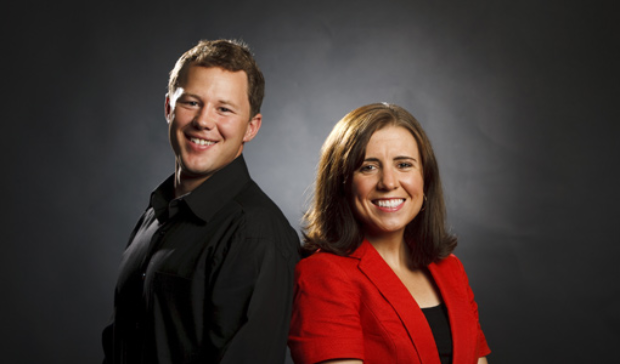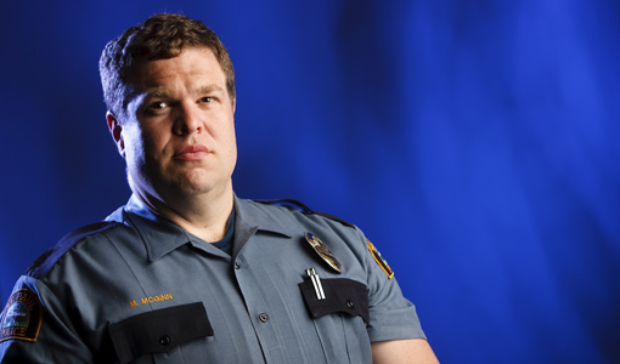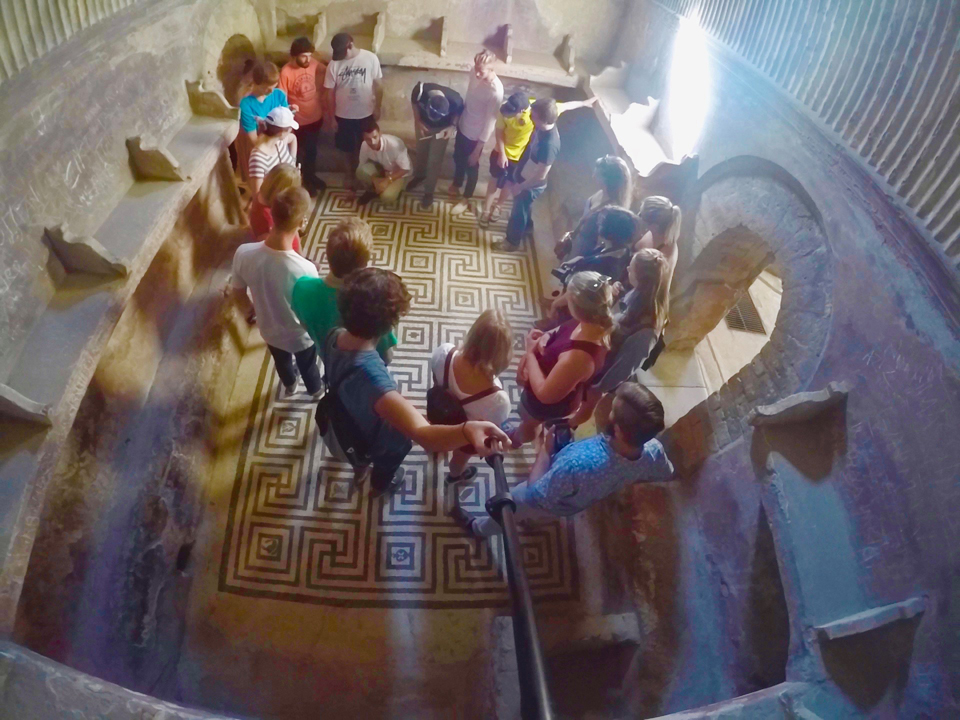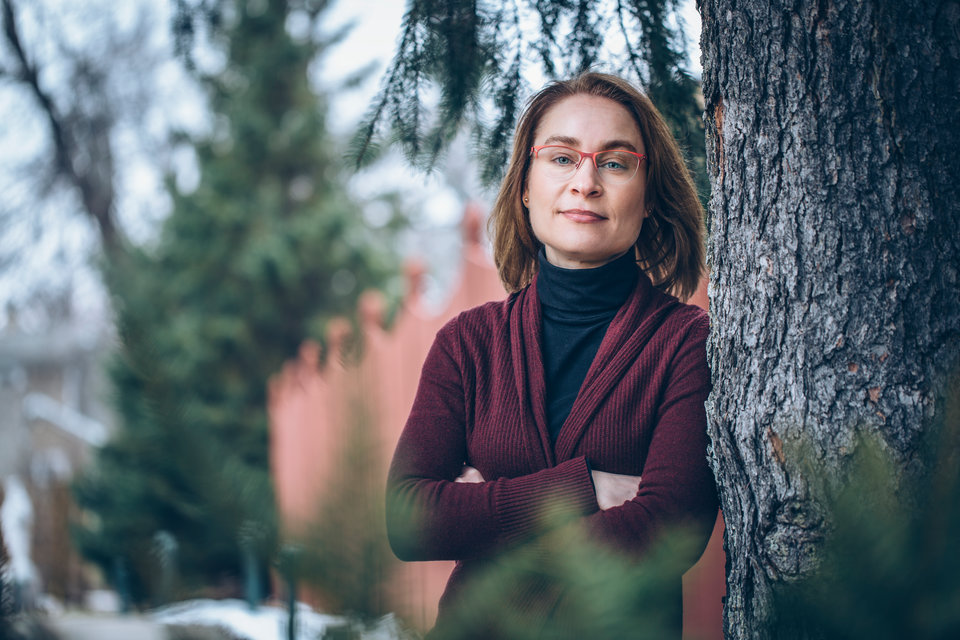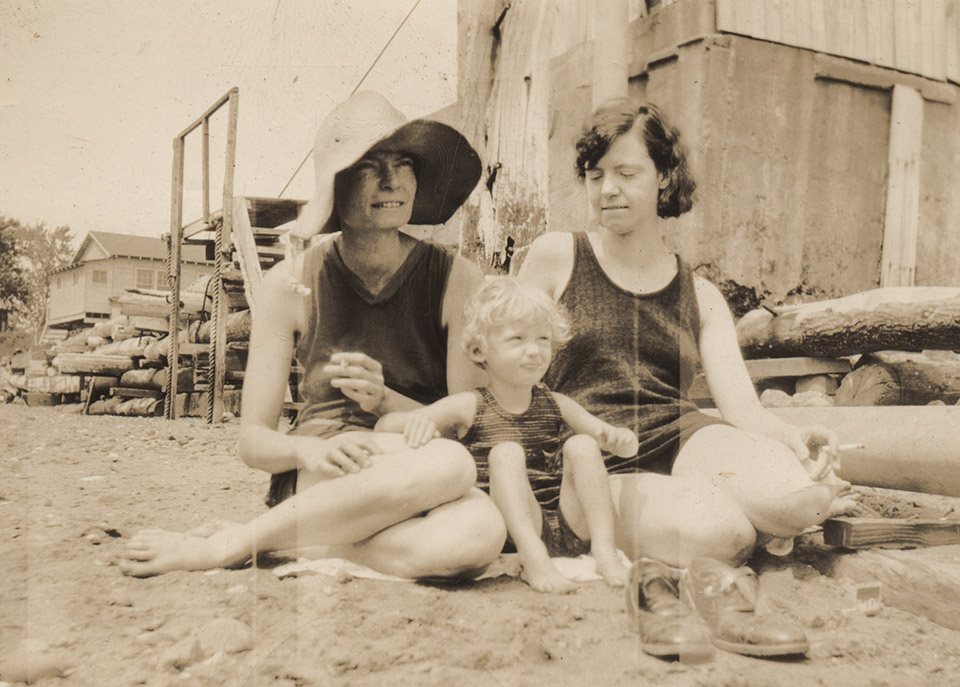Freshman year
Christi: “My freshman year I realized how much ROTC was going to make me stretch myself and push myself to do things that I never would have thought I would have done before.” That summer she participated in the Air Force Academy’s Free Fall program, making five “scary,” “amazing” free-fall jumps. “We were supposed to free fall between five and 15 seconds, and I was always closer to five.”
Jason: “I learned about the Air Force, how to follow, [how to] march.” He earned a ribbon for taking three flights with the Civil Air Patrol. He attended a weeklong summer program shadowing officers at Vandenberg Air Force Base, Calif.
Sophomore year
Jason: Up at 5 a.m. every day. “A very intense ROTC year. It’s the year you get ready to go to ‘boot camp’ (field training). There is extra PT (physical training). There’s extra ‘warrior knowledge’ … getting ready for things you’ll be rated on – speaking, leading, marching, teamwork – those types of things.” He joined the Arnold Air Society and the Black Knights Rifle Team. He played football that fall and an injury postponed his field training to the summer following his junior year.
Christi: “Sophomore year was all about preparing to go to field training – all about discipline and being in the training environment. I definitely learned to think on my feet and to react when leadership is in your face wanting you to do something. That training was just phenomenal for any situation in the business environment, whether it’s being at a meeting or answering questions, or speaking in front of people.” She attended her monthlong field training at Tyndall Air Force Base, near Pensacola, Fla. Field training: “Not a ton of sleep, very intense all day. Very formal, regimented.”
Junior year
Christi: “You become a leader. You have underclassmen and you’re responsible for a good portion of their ROTC experience – bringing them on board, getting them used to the culture and teaching them everything that you learned in the first couple of years.”
Jason: Classroom studies focused more on leadership and management. “When you’re a junior, usually you get a leadership role of some type, because in addition to the mandatory meetings, working out and marching, you’re given a physical job each semester.” Attended field training at Ellsworth Air Force Base in Rapid City, S.D.: “No coffee, no TV, no music, no newspapers, up at 5 a.m., ran everywhere. It’s just go, go, go, go, go.”
Senior year
Jason: “Within ROTC, senior year is the year to shine. You look for the big roles within the detachment.” He was selected for the No. 3 position in the cadet chain of command: operations group commander. As an engineering major, he followed up with a fifth year of studies.
Christi: Spring semester she was selected to the top slot among cadets: cadet wing commander. She was responsible for all of the cadet wing’s programs and reported directly to the detachment’s officers. The wing consisted of approximately 100 cadets. As an engineering major, she also followed up with a fifth year of studies.
Graduation
Christi and Jason: Commissioned as second lieutenants in the U.S. Air Force. Jason, graduating a semester before Christi, already wore a second lieutenant’s gold bars and had the honor of pinning Christi’s gold bars on her uniform.
Read more from CAS Spotlight
